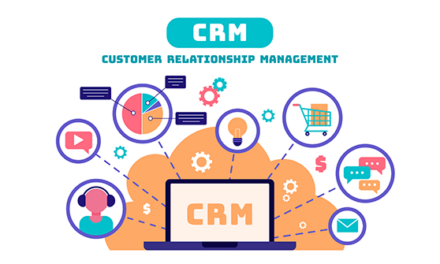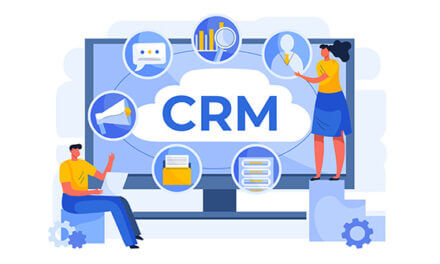Key Takeaways
- CRM (Customer Relationship Management) is essential for effective cross-selling and upselling in consulting businesses, enabling businesses to manage and analyze customer interactions and data throughout the customer lifecycle.
- Cross-selling involves offering additional products or services to existing clients while upselling focuses on convincing clients to upgrade or purchase higher-value offerings.
- CRM systems help consulting businesses segment and target clients, tailor offers based on customer preferences, and track and measure the results of cross-selling and upselling campaigns.
Consulting firms strive to maximize revenue and deepen client relationships in today’s highly competitive business landscape. Two effective strategies for achieving these goals are cross-selling and upselling.
Cross-selling involves offering additional products or services to existing clients while upselling focuses on persuading clients to upgrade to higher-value offerings. To effectively implement these strategies, consulting businesses can leverage the power of Customer Relationship Management (CRM) systems.
CRM empowers consulting businesses to harness the full potential of their existing client base. Businesses can unlock new revenue streams and deepen their client relationships by effectively cross-selling, offering complementary services or products to current clients, and upselling, persuading them to upgrade to higher-value offerings.
It’s a win-win scenario where clients benefit from tailored recommendations while businesses enjoy increased profitability.
This article will help you understand how CRM can be leveraged to optimize cross-selling and upselling in consulting businesses. We will explore its key components, discuss strategies for seamless implementation, address challenges that may arise, and highlight best practices backed by real-world case studies.
Let’s embark on this journey to unlock new revenue opportunities and foster long-term client satisfaction in consulting businesses.
- What is cross-selling?
- What is upselling?
- Difference between cross-selling and upselling
- Benefits of cross-selling and upselling in consulting businesses
- Key components of CRM for cross-selling and upselling
- Implementing cross-selling and upselling strategies with CRM
- Overcoming challenges in CRM for cross-selling and upselling
- Best practices for CRM in cross-selling and upselling
- Conclusion
What is cross-selling?
Cross-selling refers to offering related or complementary products or services to existing customers. For consulting businesses, cross-selling may involve proposing additional consulting services that align with the client’s current needs or extending the scope of an ongoing project.
What is upselling?
Upselling involves persuading customers to upgrade to a higher-value product or service, often with additional features or benefits. For example, in consulting businesses, upselling may encourage clients to opt for a more comprehensive consulting package or engage in a long-term partnership.
Difference between cross-selling and upselling
In the context of consulting businesses, it is essential to understand the distinction between cross-selling and upselling.
While both strategies aim to increase revenue and maximize customer value, they employ different approaches and target various aspects of customer relationships.
Cross-selling
Cross-selling involves offering additional products or services to existing customers related or complementary to their initial purchase or engagement. The goal is to expand the scope of the client’s engagement and provide them with comprehensive solutions that address their broader needs.
Approach
Cross-selling focuses on identifying opportunities to offer supplementary products or services that enhance or complement the client’s current engagement. These offerings provide additional value or solve related challenges that the client may encounter.
Objective
The primary objective of cross-selling is to deepen the relationship with the client by demonstrating a thorough understanding of their needs and offering comprehensive solutions. In addition, it aims to increase the overall value and impact of the consulting engagement.
Example
In a consulting context, cross-selling could involve recommending additional consulting services that align with the client’s ongoing project, such as providing strategic advice in addition to implementation services or offering training and support services alongside software implementation.
Upselling
Upselling, however, focuses on persuading customers to upgrade to a higher-value product or service within the same category. The aim is to convince clients to invest in a more advanced or comprehensive solution that provides greater benefits and meets their evolving needs.
Approach
Upselling involves presenting clients with options to upgrade their service or package to a higher level offering additional features, functionality, or benefits. The focus is on showcasing the increased value and advantages they would gain by upgrading.
Objective
The primary objective of upselling is to maximize the revenue and profitability of the consulting engagement by encouraging clients to invest in higher-value offerings. In addition, it aims to capitalize on the client’s desire for enhanced capabilities and outcomes.
Example
Upselling in consulting could include suggesting an upgraded package offering more extensive research, analysis, and strategic guidance or proposing an extended service agreement that provides ongoing support and maintenance beyond the initial project.
Key differences
While cross-selling and upselling share the goal of increasing revenue and strengthening customer relationships, there are key differences between the two:
| Point of Differentiation | Cross-Selling | Upselling |
| Focus | Offering related or complementary products/services | Upgrading to a higher-value product/service |
| Objective | Expand the scope of the client’s engagement | Enhance the depth and sophistication of the solution |
| Value Proposition | Broaden the range of solutions that complement the client | Emphasize added value, advanced features, and improved outcomes |
| Sales Approach | Identifying and presenting relevant options | Showcasing benefits and value of upgrading |
Benefits of cross-selling and upselling in consulting businesses
Cross-selling and upselling offer numerous benefits to consulting businesses. Here are some of the key advantages:
Increased revenue
One of the primary benefits of cross-selling and upselling is the potential to generate additional revenue streams.
By offering complementary products or services to existing clients, consulting businesses can tap into their established customer base and leverage their trust and loyalty. It leads to increased sales and a boost in overall revenue.
Enhanced client relationships
Cross-selling and upselling provide opportunities to deepen client relationships. By understanding their needs and preferences, consulting businesses can tailor recommendations that align with clients’ goals and objectives.
This personalized approach not only demonstrates a deeper understanding of their business but also shows a commitment to their success. In addition, strengthening client relationships can result in higher client retention rates, increased client satisfaction, and potential referrals.
Improved profitability
Cross-selling and upselling strategies can contribute to improved profitability for consulting businesses. Upselling higher-value services or packages leads to higher profit margins since the cost of serving existing clients is typically lower than acquiring new ones.
By maximizing the value of each client engagement, consulting businesses can optimize their revenue-to-cost ratio and improve their bottom line.
Long-term value
Cross-selling and upselling efforts extend the duration and value of client engagements. Consulting businesses can maintain an ongoing relationship beyond the initial meeting by providing additional products or services that address evolving client needs.
It leads to repeat business, contract renewals, and the potential for long-term partnerships. Increasing clients’ lifetime value contributes to the consulting business’s stability and growth.
Competitive advantage
Effective cross-selling and upselling strategies can give consulting businesses a competitive edge. In addition, businesses can differentiate themselves from competitors by offering a comprehensive suite of services and demonstrating the ability to meet diverse client needs.
It results in a better market position, a larger market share, and a standing for providing all-inclusive solutions.
Upskilling and expertise development
Cross-selling and upselling initiatives often require consulting businesses to expand their capabilities and develop expertise in new areas. In addition, it drives professional growth within the organization and fosters a culture of continuous learning and innovation.
By embracing new challenges and diversifying their service offerings, consulting businesses can strengthen their expertise and stay ahead of industry trends.
Customer advocacy and referrals
Satisfied clients who benefit from cross-selling and upselling efforts become valuable advocates for the consulting business.
They are more likely to provide positive reviews, testimonials, and referrals to other potential clients. Word-of-mouth recommendations can significantly contribute to business growth and attract new opportunities.
Key components of CRM for cross-selling and upselling
A. Customer data management
- Collecting and organizing customer data
CRM systems enable consulting businesses to gather and centralize customer data from various touchpoints, including interactions, transactions, and demographics.
- Importance of accurate and comprehensive customer profiles
Detailed customer profiles allow businesses to understand client preferences, behaviors, and previous purchases, which is vital for effective cross-selling and upselling efforts.
B. Sales automation and lead management
- Tracking and managing leads
CRM systems provide functionalities to track and manage leads throughout the sales pipeline. In addition, it allows consulting businesses to identify potential cross-selling and upselling opportunities among existing clients.
- Automating sales processes
CRM automates sales processes, such as lead nurturing, follow-ups, and proposal generation. It streamlines the sales cycle, making it easier to identify and capitalize on cross-selling and upselling possibilities.
C. Analyzing customer behavior and preferences
- Tracking customer interactions and transactions
CRM systems capture data on client interactions, such as emails, meetings, and phone calls. They also record transaction details, including purchases and services rendered. This information provides insights into customer behavior and preferences.
- Leveraging data for personalized cross-selling and upselling
By analyzing customer data, CRM systems help consulting businesses understand client needs and preferences. It allows them to create personalized cross-selling and upselling relevant and compelling offers to individual clients.
D. Communication and collaboration
- Streamlining internal communication
CRM systems facilitate seamless communication among teams involved in cross-selling and upselling efforts. It ensures that everyone is aligned and informed about client needs and ongoing sales activities.
- Coordinating cross-selling and upselling efforts
CRM enables teams to collaborate on cross-selling and upselling initiatives, ensuring consistent messaging and a unified approach. It also helps in tracking the progress and results of these efforts.
E. Reporting and performance analysis
- Monitoring sales performance and effectiveness
CRM systems provide reporting capabilities that allow consulting businesses to track the success of cross-selling and upselling activities. It includes conversion rates, revenue generated, and client engagement levels.
- Identifying opportunities for improvement
Through data analysis and performance tracking, CRM systems help identify areas for improvement in cross-selling and upselling strategies. As a result, it enables businesses to refine their approaches and optimize results over time.
Implementing cross-selling and upselling strategies with CRM
A. Segmentation and targeting
- Identifying customer segments for cross-selling and upselling
Using CRM data, consulting businesses can segment their client base based on industry, size, and specific needs, employing a customer segmentation model. This enables businesses to tailor cross-selling and upselling offers to different groups of clients, maximizing the effectiveness of their strategies.
- Tailoring offers based on customer preferences
CRM allows businesses to understand client preferences and purchase history, enabling them to create targeted offers that align with individual customer needs.
B. Creating cross-selling and upselling campaigns
- Designing compelling offers
With CRM insights, consulting businesses can design cross-selling and upselling offers that highlight the value and benefits for clients. These offers should be relevant, personalized, and presented persuasively.
- Developing personalized recommendations
CRM systems enable businesses to generate personalized recommendations for cross-selling and upselling based on client profiles and historical data. These recommendations can be communicated through various channels, such as email campaigns or direct sales interactions.
C. Tracking and measuring results
- Establishing key performance indicators (KPIs)
Consulting businesses should define KPIs to measure the success of cross-selling and upselling initiatives. These may include conversion rates, revenue uplift, and client satisfaction.
- Analyzing campaign effectiveness
CRM systems provide analytics and reporting capabilities to assess the effectiveness of cross-selling and upselling campaigns. By analyzing data on client responses, conversions, and revenue generated, businesses can evaluate the impact of their efforts and make informed adjustments.
Overcoming challenges in CRM for cross-selling and upselling
Implementing CRM strategies for cross-selling and upselling in consulting businesses can present various challenges. However, with proper planning and proactive measures, these challenges can be overcome.
Here are some key challenges that consulting businesses may face when utilizing CRM for cross-selling and upselling, along with strategies to address them:
A. Data quality and accuracy
- Ensuring clean and up-to-date customer data
It is essential to regularly clean and update customer data in CRM systems to maintain accuracy and reliability. It involves removing duplicates, validating information, and implementing data quality.
- Addressing data integration challenges
Consulting businesses often have data stored in various systems and platforms. Integrating data sources with the CRM system can be challenging but is necessary for a holistic view of customer information.
B. Staff training and adoption
- Providing comprehensive CRM training
Proper training is crucial to ensure staff members understand how to use the CRM system for cross-selling and upselling purposes effectively. Training should cover data entry, report generation, and campaign management.
- Encouraging user adoption and engagement
Employees may only use CRM systems if they perceive them as time-consuming or complex. Therefore, businesses should emphasize the benefits of CRM adoption, provide ongoing support, and encourage active engagement from all team members to overcome this.
C. Privacy and data protection considerations
- Complying with data privacy regulations
Consulting businesses must adhere to applicable data privacy regulations when using CRM systems. It includes obtaining proper consent for data collection and implementing robust security measures to protect customer information.
- Safeguarding customer information
CRM systems contain sensitive customer data. Implementing strict access controls, encryption, and regular security audits helps protect against data breaches and unauthorized access.
Best practices for CRM in cross-selling and upselling
Cross-selling and upselling are powerful strategies for increasing revenue and maximizing the value of existing clients in consulting businesses.
To effectively utilize CRM for cross-selling and upselling, it is essential to follow best practices that optimize the use of CRM systems and maximize results. Here are some key best practices:
Fostering trust and loyalty
Consulting businesses should prioritize building strong relationships with clients based on trust, transparency, and delivering value. CRM systems can help track client preferences and interactions, facilitating personalized and targeted communication.
Enhancing customer experience
Businesses can provide a seamless and personalized customer experience by leveraging CRM insights. It includes timely and relevant communication, proactive problem-solving, and delivering on promises.
Monitoring market trends and customer needs
CRM systems enable businesses to track market trends and customer preferences. Regularly analyzing this data helps identify new cross-selling and upselling opportunities, ensuring relevance and alignment with evolving client needs.
Iteratively optimizing cross-selling and upselling strategies
CRM provides data-driven insights into the performance of cross-selling and upselling efforts. By continuously analyzing results and making data-backed adjustments, businesses can optimize their strategy for better outcomes.
Exploring AI and automation for personalized recommendations
AI-powered features like machine learning algorithms can enhance CRM capabilities for generating customized cross-selling and upselling recommendations. These technologies analyze vast customer data to identify patterns and make relevant suggestions.
Integrating CRM with other business systems
CRM should be integrated with other systems, such as marketing automation platforms or project management tools, to ensure seamless data flow and facilitate coordinated cross-selling and upselling efforts.
Conclusion
In conclusion, using CRM (Customer Relationship Management) systems effectively is paramount for successful cross-selling and upselling in consulting businesses.
By leveraging CRM functionalities, consulting businesses can capitalize on existing client relationships to drive additional revenue streams and enhance customer satisfaction.
By harnessing the power of CRM systems and implementing sound strategies, consulting businesses can unlock the potential for growth and success in their cross-selling and upselling efforts while providing exceptional value and service to their clients.







